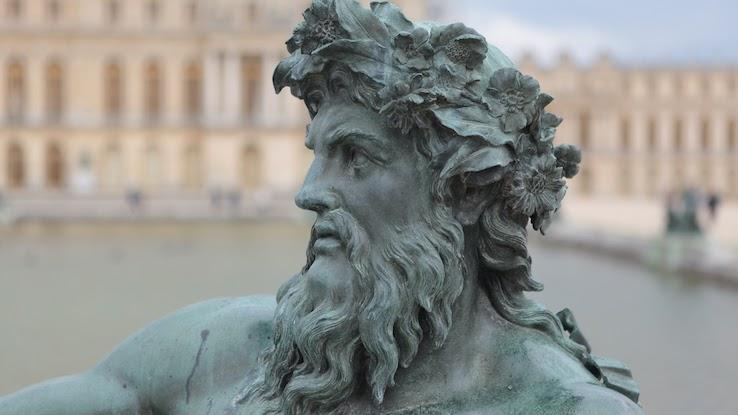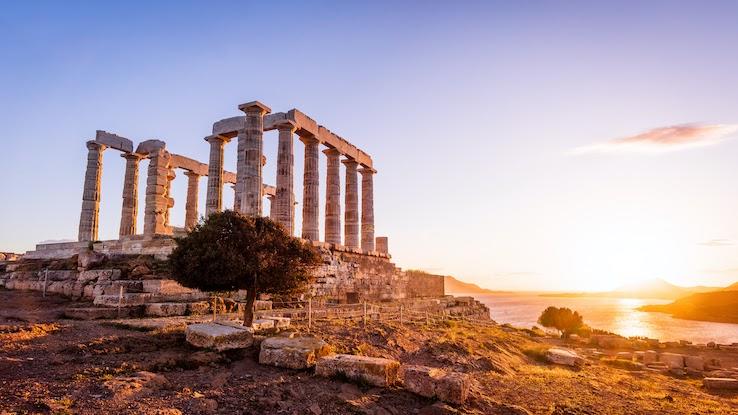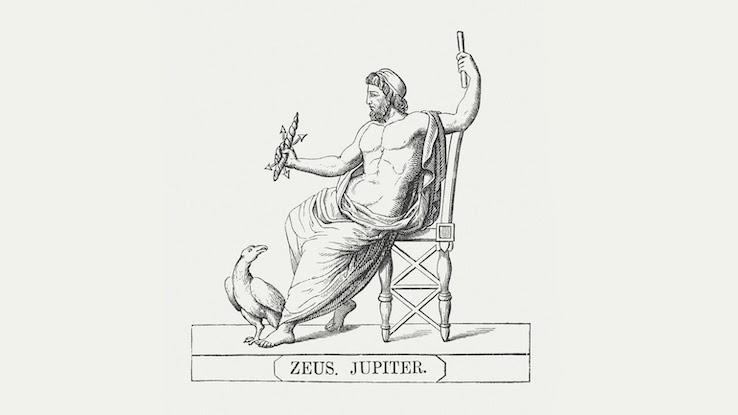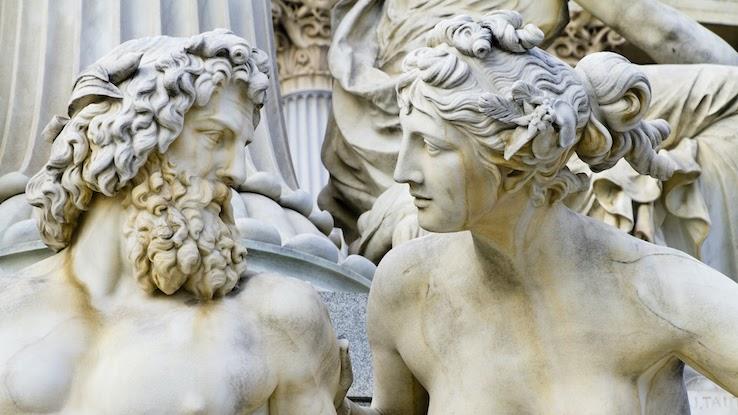How to Draw Apollo Apollo Greek God Easy Drawing

Greek mythology is a fascinating collection of stories from ancient Greek culture that explain the origins of many things and provide reasoning for the nature of the world. These myths made up the religion of the ancient Greeks, and their intention was to teach people about the significance of many aspects of the world. There are many characters that appear repeatedly in these myths, but Zeus might be one of the most famous.
Zeus was a primary figure in Greek mythology who's still known today as the "Father of the Gods." From Mount Olympus, where all the Greek gods lived, Zeus ruled over and protected both humans and the rest of the gods. This is largely what made him one of the most prominent figures in Greek mythology. Today, studying Greek mythology helps us understand the life and culture of the ancient Greeks, including their religious, political and social structures — and studying Zeus helps us better understand Greek mythology as a whole.
How Did Zeus Become the Father of the Gods?
Zeus was the son of Cronus and Rhea, two Titans, which the Greeks believed were the direct descendants of Uranus, who represented heaven, and Gaia, who represented Earth. Cronus began his reign over the heavens by stealing power from his own father, which led Cronus to develop a reputation for being a greedy, envious god. As a result, Cronus also believed that one of his children would eventually take his power from him.

To avoid this, he decided to swallow all of his children, including Hera, Hades, Hestia, Demeter and Poseidon. Zeus was saved from this fate by his mother Rhea, who tricked Cronus into thinking he'd also swallowed Zeus. Instead, she sent Zeus to Crete, where Gaia raised him with the help of the nymphs — beings that were often associated with plants.
When Zeus grew up, he found out what Cronus had done. Zeus then gave him a potion so Cronus would cough his children back up. Uniting with his newfound siblings — who had become the other Greek Olympian gods — Zeus waged a fight against Cronus and the other Titans. They viewed the Titans as lawless and thought it necessary to take over to make the world better. At this time, Zeus also married his sister Hera.
The conflict between the Olympian gods and the Titans heated up as Gaia encouraged the Titans to maintain control of the world. This resulted in a series of battles known as Titanomachy, which lasted for 10 years. With the help of the Cyclopes (one-eyed giants who gave Zeus his lightning bolts) and Hecatoncheires (hundred-handed giants), Zeus and the Olympian gods won the war and imprisoned the Titans in the deep trenches of the Underworld.
Upon their victory, Zeus became the king, or "Father of the Gods," who ruled over heaven and Earth and all the gods and other beings in it. He also made his brother Poseidon the ruler of the seas and his brother Hades the ruler of the Underworld.
Because Zeus was such a powerful force in Greek mythology, he inspired many artists who wanted to honor him. In much of this art, Zeus is typically portrayed with a long beard, and he holds both a scepter and thunderbolt. Zeus is also often depicted wearing a crown of oak leaves. This symbolizes his role as a natural authority figure who was known for being powerful, wise and just.

The symbol of the thunderbolt represented other traits of Zeus, too. Aside from being the god in charge, Zeus was also known for controlling the weather. The thunderbolt represented Zeus' tendency toward anger as well, which he demonstrates in many of the Greek myths that include him. As the ruler of the gods, he developed a reputation for handing out severe punishments.
Despite his anger, Zeus was also a peacemaker who reconciled many conflicts. This trait helped balance out his reputation. His anger led him to deliver serious punishments, but only when they were deserved. On the other hand, his tendency to help resolve problems showed that he was fair.
Zeus is famous for having an abundance of love affairs with both goddesses and mortal women, usually by disguising himself in other forms. This upset his wife, Hera, and was the cause of many of their conflicts that appear in different Greek myths. It also explains why Zeus became known for having many children, some of whom were gods, while others were half-god and half-mortal. Some of his most well-known children who also often appear in different mythological tales were Ares, Persephone, Athena, Dionysus, Hercules, Hermes, Apollo and Artemis.
What Are Some Popular Greek Myths Involving Zeus?
There are dozens of myths in which Zeus plays a starring role, and he frequently appears as a background character too. One popular myth tells the story of Zeus and Hera's meeting and eventual marriage. Initially, Zeus fell in love with Hera, but she wasn't interested. Knowing that Hera loved animals, he transformed himself into a bird so he could fly into her bedroom and charm her.

Their happiness didn't last too long, though. Because Zeus had many affairs with other goddesses and women, his marriage to Hera provides context for plenty of other Greek myths. Hera's jealousy is often at the heart of the stories, where she's seen directing her anger not only at Zeus but at the offspring that resulted from his cheating.
Before Hera, Zeus was with a Titan named Metis, who was responsible for crafting the potion that made Cronus regurgitate his other children. When Zeus heard a prophecy that they would have a son who would overthrow him, he turned Metis into a fly and swallowed her. Little did he know, she was already pregnant with their daughter, Athena, who was later born from Zeus' head. Because he swallowed Metis, Zeus gained some of her wisdom as a result, and it became part of who he was. Athena also gained that trait from her mother and became the new goddess of wisdom. She also became the goddess of war thanks to Zeus' fiery tendencies that he passed to her.
The myth that explains how humans discovered fire also involves Zeus. Zeus kept fire from humans out of anger. But Prometheus, a Titan, secretly gave humans fire by hiding it in a stalk of fennel. Humans were able to make great advances as a result, leading them to civilization. True to form, Zeus became enraged with Prometheus' defiance and punished the Titan harshly.
Many of the lessons in Greek mythology helped the ancient Greeks explain many of life's complexities. They helped to teach the concepts of good versus evil, the power of love and the consequences of things like greed and fear. Because Greek mythology was followed similarly to a religion, the myths were likely designed to teach society about morals. For instance, Zeus often let his anger get the best of him, and this is a lesson on the value of controlling your emotions. This demonstrates how many of the ancient Greeks' teachings are still important today.
Source: https://www.reference.com/history/basic-history-zeus-greek-god?utm_content=params%3Ao%3D740005%26ad%3DdirN%26qo%3DserpIndex&ueid=83a290be-2bd7-42ae-9a96-385a9843f794
0 Response to "How to Draw Apollo Apollo Greek God Easy Drawing"
Post a Comment